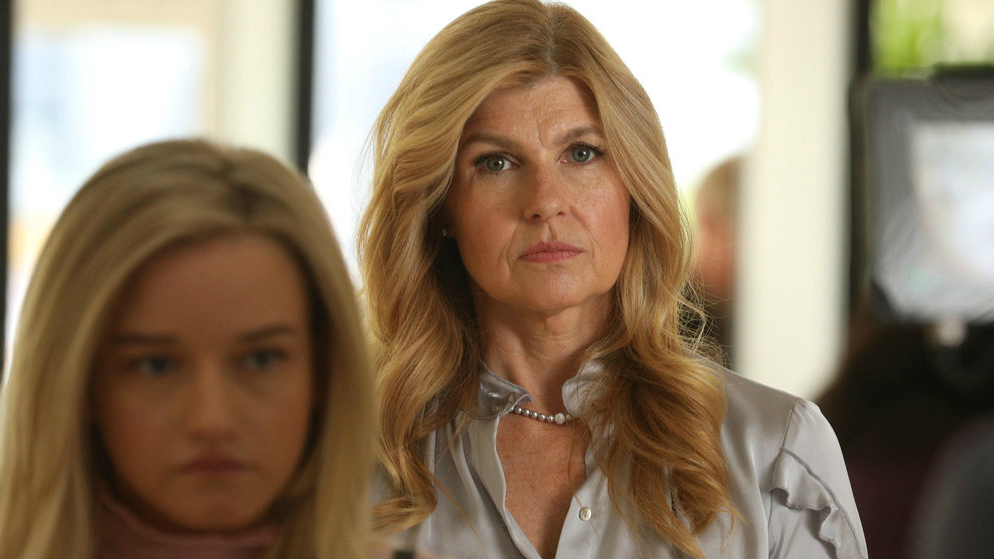Now on Netflix as of December 2019, “Friday Night Lights” star Connie Britton terrifically brings Debra (the subject of “Dirty John”) to life in Season 1. Opposite Britton is Eric Bana, who has the tricky task of playing John Meehan, a smooth-talking criminal whose duality requires him to portray a persistent air of mystery.
Heading in, many viewers know John’s true nature. That said, Eric Bana still has to make John’s nice guy routine believable enough to buy he could reel in his prey. At the same time, the always impressive Bana has to make John come across dangerous enough that it would genuinely raise the alarm bells of Debra’s young adult daughters, which he does.
As John enters the picture, the seductive splendor of California sunshine and everything that goes with it is in full force in the anthology. For those who have listened to the “Dirty John” podcast or watched the excellently crafted Dateline episode about it, the TV series astutely brings the essence of the true crime story to life in its first few episodes.
The gritty way yours truly imagined “Dirty John” being adapted, replete with “Big Little Lies” grainy cinematography is not present here. A feel that would have potentially set a more suspenseful atmosphere. Not filming it this way does create an interesting result.
“Dirty John” relies on its bubblegum visage to seemingly lull the audience into a false sense of security. It is as if it wants you to get the feeling true-life often gives us. Nothing bad can happen to you if it is sunny outside. But it can.
From my mind's eye, Christopher Goddard's expert podcast became a sensation because of its scarier than fiction story, which features a forbidden love getting revealed as the machinations of a con man. The “Dirty John” podcast provides keen insight into a story teeming with insight into the central family and John.
One of the reasons the podcast was so personally fascinating was hearing those who knew him, describe John Meehan. The guy who slithered his way into their lives. There is so much to explore on-screen based solely on their accounts. It makes the “Dirty John” series creating an altered version of Debra's eldest daughter (she gets a new name) entirely unnecessary.
The thing the “Dirty John” series also misses is the “confessional” feel of the podcast. Bravo's TV series tells viewers the story but not as you hear it in the podcast. It featured interviews that told listeners the story. In truth, the TV show would have benefitted from the documentary-style take “Bernie” did so brilliantly.
Sadly, “Dirty John” does not cast Debra’s daughters (played by the excellent Juno Temple and Julia Garner) in the most favorable light. On the podcast, their plight is incredibly sympathetic. I cannot help thinking and feeling that the show does them a disservice in portraying their concerns or motives any other way. Debra's fictionalized eldest daughter is especially slighted.
“Dirty John” Season 1 is currently streaming on Netflix. If you end up binge-watching it, I would highly recommend also listening to the podcast. Not only is it one of the best around, but it also offers a penetrating look into what it means to love someone others justly warn against.
So much has been made about lovers forging ahead in spite of their family’s warnings and protestations. Who better than the people who have known and cared for you the longest to weigh in? Sadly, many “Dirty Johns” have been romanticized as Romeos when a darker portrait may be more appropriate.
“Dirty John” gives would-be victims the chance to see this scenario from the outside looking in and assess how they can prevent becoming one. If you have not listened to the podcast, seeing this story brought to the screen may not hold the same interest. For those who have, it possesses another layer.
Rating: 6.5/10
Season 1 of “Dirty John” is currently streaming on Netflix.[Featured Image by Jordin Althaus / Bravo]

Comments
Post a Comment